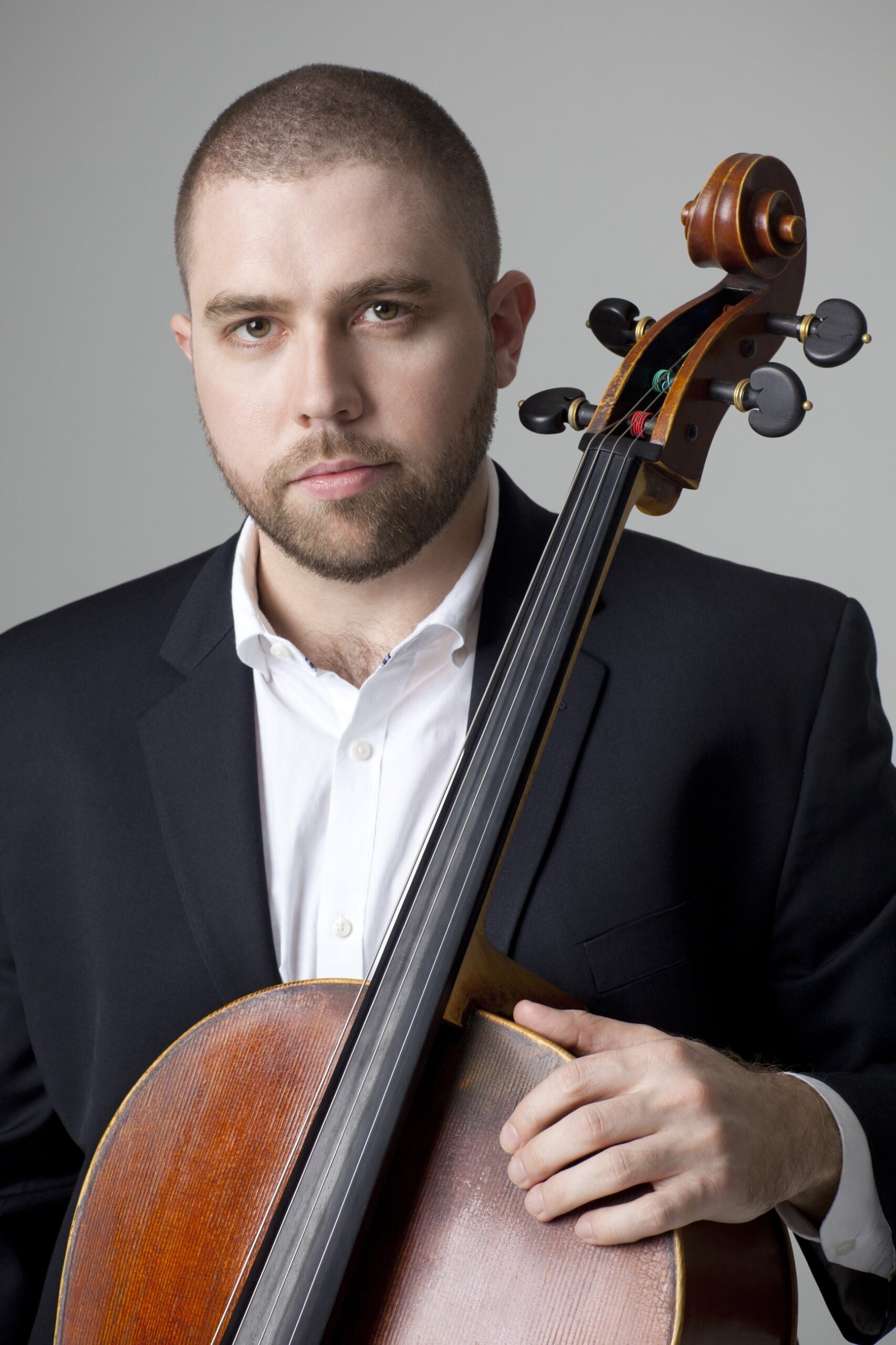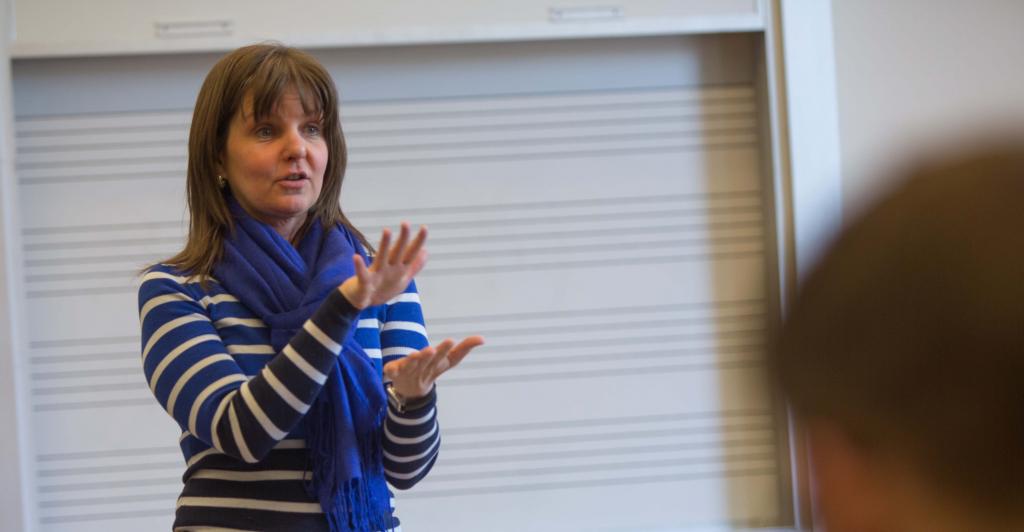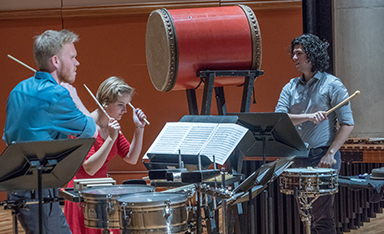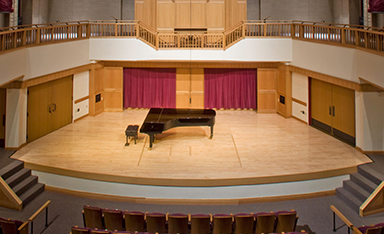The Lamont music theory department offers academics, performers and composers a robust catalog of specialties and concentrations. Small class sizes and advanced coursework reflect the Lamont School of Music reputation as a premier music school in the West. We offer a broad range of courses, including traditional topics such as counterpoint, post-tonal theory, music theory pedagogy, and linear analysis. Repertoire-based seminars range from the music of J.S. Bach to Brahms to the music of fin-de-siècle Paris. "Rhythm and Meter," "Analyzing Popular Music," and "Arranging for the Classical Musician" engage popular, commercial, and vernacular genres. Complementary offerings in musicology and ethnomusicology courses run the gamut from global early music to Mahler to Hindustani classical music, as well as popular and gospel music. Graduate students in the music theory program can also perform in ensembles or take private lessons.
Under the close supervision of a faculty member, students pursuing the Master of Arts in Music Theory write a thesis that makes an original contribution to the field on a topic of their choosing. By serving as Graduate Teaching Assistants for our undergraduate theory courses, our music theory students receive a scholarship and stipend and also immediately gain teaching experience.
Equipped with this deep body of knowledge and experience, music theory graduates go on to careers in music education, performance, composition, arrangement and arts direction or administration. Many MA music theory graduates also continue their studies at top-tier PhD programs.
Graduate students with an interest in music theory might also choose to do a Certificate in Music Theory Pedagogy, which cultivates applied skills for careers in music education, performance, composition, arrangement and more.
Faculty











